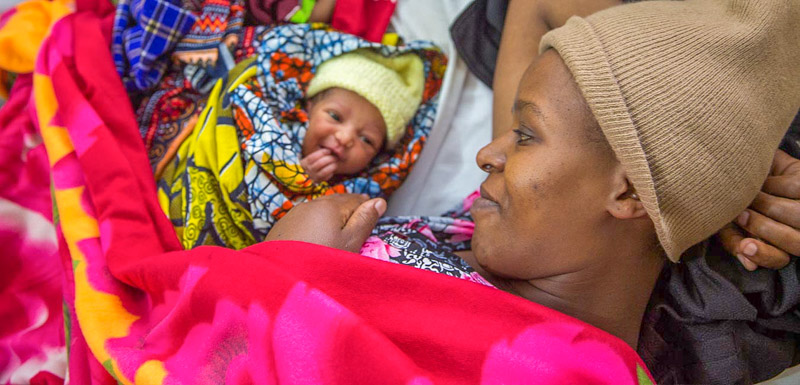The midwife dedicated to helping Ethiopian women give birth safely
Royal Hospital for Women midwife, Maryanne Ayres, is on a mission to improve maternity outcomes in some of the poorest parts of Africa – and to educate Australians while she’s at it.
Ms Ayres first learned about the shocking conditions under which many Ethiopian women give birth when she saw a BBC documentary in the late 1990s about the Australian gynaecologist Catherine Hamlin. The story stayed with her. A few years later, in 2001, Dr Andrew Browning was giving a talk at The Sutherland Hospital, where Ms Ayres worked, about maternal care in Africa. As soon as she heard him talk she knew she wanted to follow in his footsteps.
She began fundraising, first by organising movie nights and then by hosting lunch events and cocktail parties. “With only a small amount of money a lot can be achieved in these places to save lives. It costs, on average, about $200 for a woman in Ethiopia to have access to antenatal care to safely give birth,” Ms Ayres said.
She also began spreading the word in schools. “I’ve got a sister who’s a Mercy nun, and for years I ran programs in all the Sisters of Mercy schools in Sydney. I’d go and speak and try to get these young girls to make squares for blankets that we could send to Africa.”
In 2009 Dr Andrew Browning founded a charity of his own with his aunt, Valerie Browning, called the Barbara May Foundation. By then, Ms Ayres had relocated to the Royal Hospital for Women.
“Around that time, Dr Browning's father, who is a retired gynaecologist, came to The Royal Hospital for Women to give a talk about what his son was doing and what the new charity was trying to accomplish. It was the first time I’d met him. I pointed to a flyer in the ward and said, ‘I’m actually doing a fundraiser for your son right now.’ Not long after that, he asked me to join the board of the foundation.”
Since then, Ms Ayres has worked tirelessly to support the foundation’s work. Currently, one of the items she is promoting is SESLHD’s Workplace Giving Program, which covers the running costs of a maternity hospital based in Bahir Dar.
“I often wonder if the women I look after in Sydney know how fortunate they are to get good maternity care and have good outcomes. In Australia, if something goes wrong, there’s a theatre and doctors and blood products available – we can do an emergency caesarean within 30 minutes. About 85 per cent of Ethiopia is mountainous and difficult to access, so in rural communities, care is almost non-existent. The locally trained doctors’ skills can be very limited, resulting in a very high infant and maternal death rate,” Ms Ayres said.
